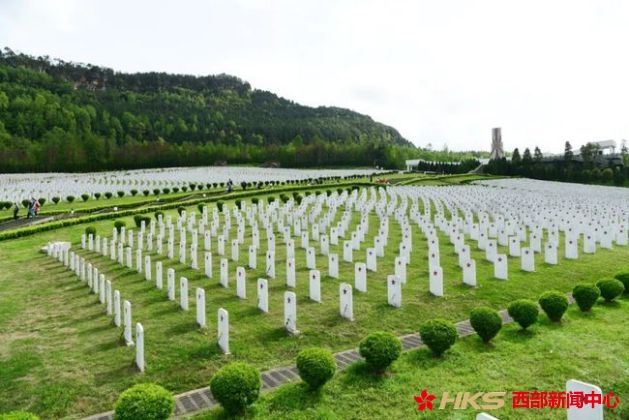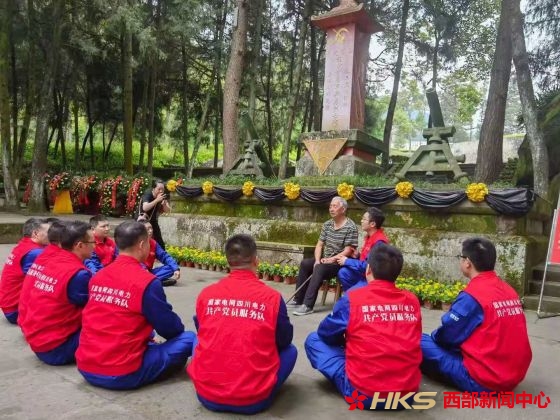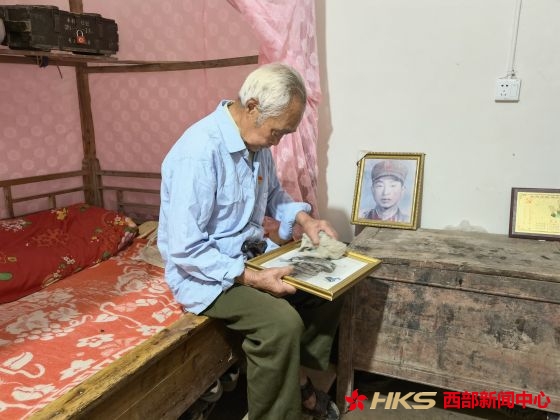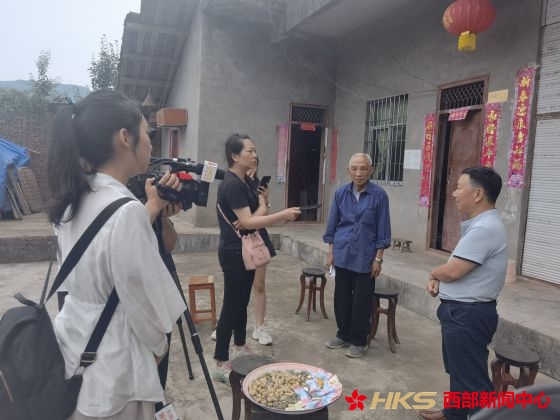Bazhong sets example by caring for martyrs’ families
Three generations of one family - Wang Chengxian, his son Wang Jiangang and his grandson Wang Junpei - who volunteer to guard the tombs of martyrs at the Sichuan-Shaanxi revolutionary base, are the epitome of Bazhong residents’ care for martyrs’ families.
Bazhong, an old revolutionary base area in Southwest China’s Sichuan province, is also the center and capital of the Sichuan-Shaanxi revolutionary base, the country’s largest cemetery for Red Army martyrs. More than 25,000 revolutionary martyrs were buried there.

The Sichuan-Shaanxi revolutionary base, the country’s largest cemetery for Red Army martyrs, in Bazhong, Southwest China’s Sichuan province. [Photo/HKS]
Wang Jiangang, a 69-year-old man with disabilities, goes to the cemetery every day, removing weeds and cleaning the tombs.

Wang Jiangang, a 69-year-old volunteer who has guarded the cemetery for decades, tells revolutionary stories to visitors. [Photo/HKS]
Zhang Shanming, the son of Red Army soldier Zhang Zuoshan, expressed his gratitude to the Party and the government’s policies of caring for martyrs and providing financial support, as well as the help from social organizations and Hong Kong benefactors.
Zhang said his father died when he was only about three months old.
Luo Jiafu, a resident in Bazhong’s Enyang district, has been well treated by the Party and the local government since his son, Luo Xiaoqin, died at the age of 19 in a mission in Northwest China’s Xinjiang Uygur autonomous region in 1979.

Luo Jiafu, father of a Red Army soldier Luo Xiaoqin, cleans a photo of his son. [Photo/HKS]
The association that cares for martyrs' families in Bazhong joined hands with government departments to solve Luo’s difficulties, such as his grandson’s transfer to another school and the renovation of his house. His house has since taken on a new look.
During this year’s two sessions, Lin Wu, a member of the National Committee of the Chinese People's Political Consultative Conference (CPPCC) and the former deputy director of the Liaison Office of the Central People’s Government in the Hong Kong Special Administration Region, proposed setting up a platform to care for martyrs’ families using social resources.
It was selected as a key proposal at the two sessions. Bazhong became the first demonstration site in China to carry out the proposal.

Journalists visit a martyr’s family in Bazhong city, Southwest China’s Sichuan province. [Photo/HKS]
In December 2020, the city launched China’s first regional association aimed at caring for martyrs’ families. It has gained much attention and great support from social organizations, enterprises and individuals.
By June, the association had received 1.82 million yuan ($281,700 )from Hong Kong.
According to an official in charge of veterans' affairs in Bazhong, the city has developed a unique mechanism combining the martyrs’ families' information, a tailored account, a service system, a raft of measures, and a supervision and appraisal system.
Statistics show that about 174,000 yuan has been provided to cover the medical expenses of 78 martyrs’ families and offspring; and 78,000 yuan has been provided to 45 recipients from needy martyrs’ families since the beginning of this year.
The association allocated 273,700 yuan to 74 families and six veteran Red Army soldiers in the first six months of this year.
In October 2020, Bazhong was named a national model city for mutual support between the local government and the army. It was the second time that Bazhong has won the honor since 2016.

